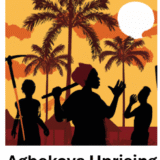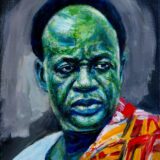The Swiss Affairs

The salt-laced air of the Atlantic kissed Erik Johansson’s face as he surveyed his sprawling Black Bay Estate. Once a haven of joy, a monument to a life well-lived, it now felt vast and echoing. At 82, the grand mansion was now more of a burden than a symbol of success.
Erik, a retired executive from one of the chocolatiers, had always cherished this home. He had poured his heart and soul into its creation, meticulously selecting every antique, every piece of art. But now, the weight of its grandeur pressed down on him. The echoing halls, the cavernous dining room, the manicured gardens that demanded endless upkeep – it all felt like a gilded cage.
Life in the US had always been attractive to him. So, as he approached retirement, he had bought this sprawling mansion, intent on living his later years to the fullest. But nature had other plans for him, and he has lately struggled with his health. Saga, his partner, had never liked living here. She had settled for a life in the Swiss Alps, satisfied with visiting him from time to time.
The decision to downsize wasn’t easy. But Erik knew it was time to embrace a simpler life, one that was aligned with his changing needs. He began to explore his options. A cozy cottage by the sea? A penthouse apartment in the city? Perhaps a retirement community with vibrant social activities? The possibilities were endless, each with its own allure.
It was while contemplating all this that a friend mentioned Moria to him as the solution to his needs. He called her, and her agency helped him to sell the mansion and buy a smaller house that met his needs. It was in this process that a friendship developed between them.
In getting to know each other, they found out that their lives have been shaped by the same commodity – Cocoa. This chance encounter that developed into a friendship was what rekindled Moria’s interest in the Agbekoya story, an interest that Erik gracefully filled with narratives that were then unknown to her.
It was at a quaint restaurant on the Boston harbour overlooking the Logan International Airport that Erik poured out his heart to her on the politics of Cocoa in the late sixties. Moria took notes as she listened attentively to him talk about the Swiss chocolate industry.
They were engrossed in conversation for nearly three hours. Erik, a captivating storyteller, held forth while Moria listened intently, taking notes, occasionally interjecting with insightful questions. At last, Erik glanced at his watch. A physiotherapy appointment was calling him away. He rose, but before leaving, leaned in slightly, his eyes glinting with a mischievous spark.
“Moria,” he said, “this is only the tip of the iceberg. There’s much more to this story.”
He paused, letting the suspense breathe. “Do you know why Kwame Nkrumah was removed as President of Ghana? Let’s meet again — I’ll tell you more.”
Moria remained at the table, her fingers resting on her notes. The weight of what she had just learned settled over her. Here she was, thousands of miles from Nigeria, uncovering threads that connected the cocoa price slump to the Agbekoya uprising. This was no coincidence – it was a piece of the larger puzzle she needed to understand.
She ordered another cup of tea and shifted to a seat by the window. Pulling her notes close, she knew she had to capture the conversation while it was still alive in her mind. She began to write:
Willy Spühler, a seasoned politician with a career spanning decade, was contemplating his legacy as President of the Swiss Confederation. From his office window in Bern, he watched the traffic on Dalmazibrücke as it straddles the Aare River, providing a connection between Kirchenfeld on its east bank and Marzili on the West.
The Swiss chocolate industry, a cornerstone of national pride, dominated his thoughts. Throughout Switzerland, chocolatiers are a ubiquitous presence. From the shores of Lake Geneva in Vevey and Versoix to the bustling cities of Lausanne, Zurich, and Lucerne, and even the more secluded towns of Le Locle, Bern, and Aarau, their influence is undeniable. As a powerful economic force and a significant employer, the industry wields considerable political sway. Its support was a decisive factor in determining which party or group held power in Switzerland.
As he looked through the window, in his hand was the letter from a pressure group led by titans in the industry, who had visited him the previous day. They had urged him to oppose the establishment of an International Cocoa Organisation (ICO). Their argument was simple: higher cocoa prices would harm national economies. What bothered him was not how this simplistic argument was arrived at but what should be the right decision for his legacy and Switzerland, in that order.
Switzerland, a land of towering peaks and crystalline lakes, was also a global epicentre of a different kind of treasure: chocolate. Its confectioners were renowned for their artistry, crafting confections that were as exquisite as the alpine scenery. Yet, a peculiar paradox lurked beneath this sweet veneer. While Switzerland was a chocolate paradise, it was a cocoa desert. The beans that formed the heart of every chocolate bar thrived in the humid tropics, a climate utterly foreign to the temperate Swiss Alps. The Swiss, ever resourceful, had attempted to cultivate cocoa domestically, but the challenges were insurmountable. The delicate cocoa plants, accustomed to the warmth and humidity of equatorial regions, struggled to survive in the cooler, drier Swiss climate.
The most promising solution was greenhouses, vast structures that could replicate the tropical conditions cocoa craved. However, the scale of the endeavour was daunting. Cocoa trees, with their towering canopies, demanded ample space to grow. Building greenhouses large enough to accommodate these tropical giants would be a logistical and financial behemoth.
Until the Swiss could devise a solution to their cocoa cultivation dilemma, they remained inextricably linked to West Africa, particularly Ghana and Nigeria, the world’s largest cocoa producers. The uninterrupted flow of cocoa beans was vital to the Swiss economy, supporting jobs in logistics, production, and export.
However, a threat loomed over this delicate relationship – the International Cocoa Organization (ICO), a global body representing cocoa producers, was on the brink of being formed as a cartel. This move, driven by a desire to increase producer revenue, could disrupt the supply chain and drive up the price of cocoa beans. The Swiss chocolatiers, already grappling with the challenges of sourcing their primary ingredient, faced the prospect of further instability. The Swiss are determined not to fold their hands and watch this threat evolve; they want to stop the ICO from being born, fearing it would become a powerful force driving up prices.
As he read the letter, he nibbled at one of the exquisite chocolates left by the pressure group; he could attest that it tasted good. Spühler made a mental note to address the United Nations and advocate for lowering cocoa prices. He saw himself standing at the United Nations delivering a speech that would remain in the annals of history as part of his legacy. He became convinced that, in this case, protecting the Swiss chocolate industry was the right thing to do for his legacy. But before his meeting, he had an ingenious idea. He called his assistant, instructing her to send a selection of Swiss chocolates to the United Nations Secretary-General, accompanied by a note that simply read, “Want more?”
Getting Spühler to pressure the UN was just one of the multifaceted ways that the Swiss pressure group had agreed to pursue to bend cocoa-producing nations to their will. Crafting a deceptive narrative that lower cocoa prices were not only good for consumers but also beneficial for the very producers they exploited was another. Despite the glaring economic consequences of lower cocoa prices for West African nations like Ghana and Nigeria, the companies forged ahead with their insidious plan. Their target: Dr. Tomoye Olusoga, a respected scholar with a deep understanding of the region’s economic challenges. With the right incentives, they believed they could sway Tomoye to write a research paper that painted a rosy picture of low commodity prices for West Africa.
As masters of manipulation, they executed their plan with meticulous precision. They placed an ad in the Daily Sketch of Nigeria, seeking economic researchers interested in a development economics project focused on the cocoa industry.
As Nigeria stood on the threshold of independence, a severe shortage of skilled professionals loomed, threatening to stall the nation’s progress. In response, the Commonwealth Scholarship and Fellowship Plan (CSFP) handpicked a select group of gifted scholars to pursue advanced degrees abroad. Among them was Tomoye Olusoga, the son of Asake, the palm oil trader from Ibadan.
Gifted with a sharp and curious mind, Tomoye defied the constraints of his modest upbringing. He earned a bachelor’s degree in economics from University College Ibadan — then an esteemed affiliate of the University of London — before completing a PhD in Development Economics at the prestigious University of Melbourne.
Returning home with a deep commitment to national growth, Tomoye was appointed Research Director at the Cocoa Research Institute of Nigeria (CRIN). Driven by a passion for economic development and an acute understanding of the cocoa sector’s untapped potential, he was quick to seize opportunities. When a call for research appeared in the Daily Sketch, he recognised the perfect chance to apply his expertise. The Swiss pressure group, equally swift in its decision, commissioned him to lead the project without delay.
Tomoye’s research revealed that higher prices would incentivise increased cocoa acreage and benefit producers. The pressure group was discontent as his research was a defiant counterpoint to their meticulously crafted narrative. They questioned his methods, subtly hinting that his ‘lack of field experience’ had led him astray. They presented him with a stack of European studies, each a polished echo of their desired conclusion: lower prices, a universal boon. Standing at the intersection of truth and compromise, Tomoye felt the strain of a moral tightrope – one misstep betrays his integrity, yet resistance came with its own costs.
He was under immense pressure; should he bend his findings, reshape them to fit his paymasters’ agenda, and secure the funding he desperately needed? Or should he stand firm, a lone voice against a tide of corporate influence? In that fraught moment, he asked himself, “What would Lambert do?”
Professor Lambert, a titan of academia with his shrivelled white beard that seemed to hold centuries of wisdom, had warned about the treacherous currents of commissioned research. “The unforgivable sin,” he had thundered, “is to compromise the truth.” It was as if Lambert’s voice, resonant and unwavering, filled the room.
At that instance, Tomoye knew what Lambert would do: uphold the sanctity of his research. But the weight of his family’s dreams, the humble house he yearned to build, pressed down on him with agonising force. Every brick of that future home seemed to whisper a temptation, a siren song of compromise. Yet, deep within him, the ancient code of the “Omoluabi,” the Yoruba ideal of uprightness, resonated like a drumbeat, an unyielding refusal to betray his principles. He would not, could not, sell his truth for a house.
Meanwhile, in Zurich, Erik Johansson, then a chocolate mogul with a reputation for his keen business acumen, was flipping through the latest copy of the Neue Zürcher Zeitung (NZZ). His office, a sleek sanctuary of polished wood and soft leather, was as refined as the chocolate he oversaw. It was 10 past the hour, and he was holding the day’s copy of the NZZ in his hands while enjoying his morning cup of tea and biscuits.
His assistant had just left the room after handing it over to him. The phone was ringing incessantly, but he couldn’t be bothered. Anyone who was anyone knew not to call him at 10 past the hour when he was taking his morning tea; in any case, Saga would take the call when she got to her seat.
He had made a good living off the chocolate business and was always interested in keeping abreast of developments in the industry. A man of his stature and power hadn’t reached his position by being ignorant of developments in his world.
As he scanned the pages, his eyes fell on a seemingly innocuous news item: “San Francisco utnämnde Ghirardelli Square till ett officiellt stadslandmärke[1]” at the lower corner of the fourth page.
It was an innocent news piece, and not many would have taken notice of it, but not Erik. His mind raced with possibilities, differing from the serene atmosphere of his office. He buzzed for his assistant, Saga Karlsson, a striking young woman in her early forties with a figure that commanded attention: ‘Please get me Emil Gustafsson, my dear.’
One can smell the scent of an office romance between the two. Not that Erik could be accused of anything untoward to Saga; it was the frolicking of two mutually consenting adults. Saga was the one who initiated it, aware that Erik had just gone through a bitter divorce. At their office in Zurich, the affair was an open secret that everyone knew, but no one talked about.
Seeing the name Ghirardelli had jolted Erik to a possibility that the pressure group had missed: what if West African cocoa was starting to be diverted to the West Coast of America, where Ghirardelli was willing to pay better prices than the Swedes? This was a potential game-changer, a door of opportunity that no one seemed to have considered which must be closed.
Not that this hadn’t been tried before, Erik mused, a flicker of history crossing his mind. Just over three decades ago, a Ghanaian cocoa trader named Winfried Tete-Ansah had attempted a similar feat. A Krobo man, Tete-Ansah, had founded the West African Co-operative Producers, a bold venture to bypass the imperial system and directly export Gold Coast’s and Nigerian cocoa to the United States. Unfortunately, the European stranglehold on the cocoa trade proved too strong. Tete-Ansah’s companies faltered, leaving him with a staggering £11,000 loss and unpaid debts to farmers for about 400 tons of cocoa.
Erik leaned back in his chair; his gaze fixed on the newspaper. He knew that if it had been done before, it could be done again. As he awaited Emil, he began to ponder the logistical challenges. The shipping routes between West Africa and the West Coast of America were limited, and the Panama Canal, with its intricate locks and lengthy queues, presented significant hurdles. But what if Ghirardelli and its West African suppliers could bypass the Panama Canal entirely, shipping the cocoa to the East Coast of the United States and then transporting it by rail to major markets like San Francisco? Desperate times call for desperate measures.
Emil sauntered in, “You called for me, boss.”
Erik handed the NZZ to Emil, pointing at the news item. “What do you think?”
Emil scanned the article, thought for a moment, then said, “What’s so striking about this? It’s just a news item about a chocolate company.”
Erik was unimpressed. With years of tutelage, he expected more from Emil. By Erik’s standards, Emil should be living and breathing chocolate, knowing competitors like Ghirardelli inside out. However, Erik also saw this as a teachable moment. In aristocratic German, he shared his concerns with Emil, who immediately saw the same problem Erik had seen. But Emil also saw an opportunity that Erik had missed.
Emil explained that if Ghirardelli chose to pay better than they did, they should encourage it. Erik was bewildered. Had Emil lost his mind? Though he didn’t express this in words, his facial expression spoke volumes. Noting the expression, Emil said, “Let me explain so you can understand. With high input costs, Ghirardelli would have no choice but to increase their chocolate prices. When that happens, it will be an opportunity thrown at our laps.”
Erik, you know how long we’ve been seeking a market entry opportunity on the US West Coast. Perhaps this is it. We can deliver quality Swiss chocolates at lower prices than Ghirardelli to the American consumer.
“How come I didn’t think of that?” Erik muttered to himself. His earlier dejection at Emil had faded away. “Excellent thought,” he said. “We need to get the boys in planning to work out that scenario, but we need to keep it under wraps for now.” He was already thinking of how to outmaneuver the other members of the Swiss coalition.
[1] Swedish, meaning “San Francisco designated Ghirardelli Square as an official city landmark”
Previously Prologue. Next? Osegayefo Must Die
Erik’s second meeting with Moria, informing her of the extent to which the Swiss were involved in protecting the chocolate industry from threats against cocoa supply



